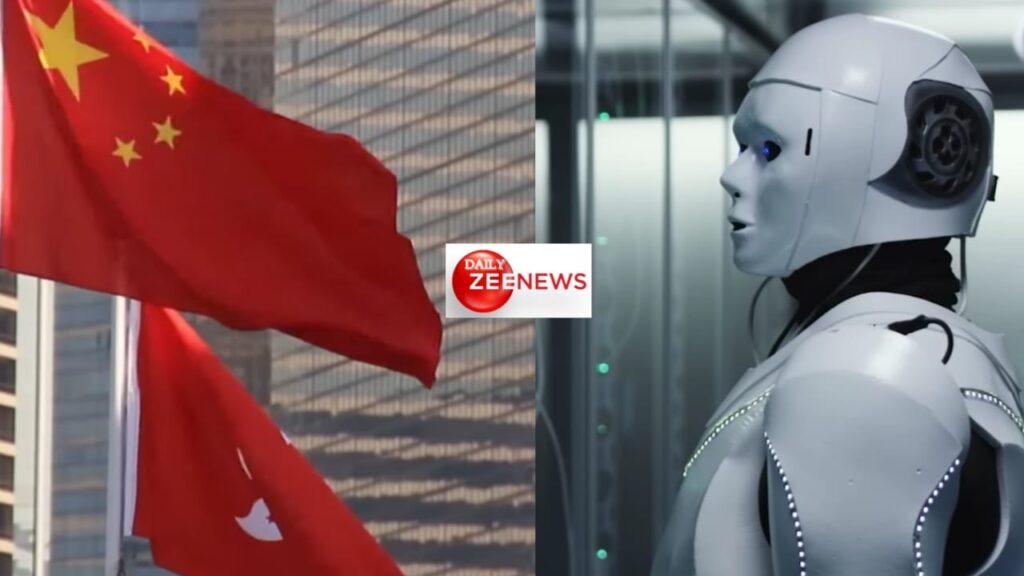
Chinese AI Startup DeepSeek Shakes Up Silicon Valley: Implications for India and the Global AI Race
January 2024 – Silicon Valley, USA – In a rapidly evolving tech landscape, the emergence of DeepSeek, a Chinese-backed AI startup, has caused ripples in Silicon Valley. With its impressive portfolio of AI technologies and breakthrough innovations, DeepSeek is set to challenge the dominance of established American tech giants like Google, Microsoft, and Meta. As the startup gains traction, its influence is expected to extend far beyond the borders of Silicon Valley, creating potential shifts in global competition, investment trends, and geopolitical dynamics.
With AI becoming the central battleground for the future of technology, DeepSeek’s rise signifies a potential game-changer—not only for Silicon Valley but for other countries like India and emerging markets looking to navigate the increasingly competitive global AI race.
This article explores the implications of DeepSeek’s growth, its effects on global AI markets, and how it may reshape the future of technology in both the US and India.
DeepSeek’s Technological Innovations: A Global Competitor in AI
DeepSeek, founded in China, has made notable strides in developing AI systems that span across various sectors. Some of its core innovations include:
| Technology Area | DeepSeek’s Innovation | Industry Impact |
|---|---|---|
| Machine Learning | Advanced neural network architectures capable of solving complex problems faster than traditional models. | Speed up automation in industries like manufacturing, finance, and e-commerce. |
| Natural Language Processing (NLP) | DeepSeek’s NLP models achieve state-of-the-art results in sentiment analysis and language translation. | Empower customer service automation, chatbots, and voice assistants. |
| Computer Vision | Advanced image recognition with unparalleled accuracy, suitable for healthcare, surveillance, and autonomous driving. | Impact autonomous vehicles, medical diagnostics, and surveillance systems. |
| AI-Driven Robotics | Breakthrough AI algorithms for real-time robot decision-making and learning. | Transform logistics, manufacturing, and medical surgeries with intelligent robotics. |
DeepSeek’s ability to integrate these cutting-edge technologies across diverse industries has positioned it as a rising competitor to the top US-based AI firms. As the AI field grows increasingly competitive, DeepSeek’s products are seen as a threat to Silicon Valley’s dominance.
Investment Surge: The Global Funding Battle
DeepSeek’s innovations have caught the attention of investors around the world, and the startup has secured funding from Chinese venture capital firms and global institutional investors eager to capitalize on the AI revolution.
Table: Investment Trends in DeepSeek and Competitor Startups
| Company | Funding Secured (2024) | Primary Investors | Technological Focus |
|---|---|---|---|
| DeepSeek | $800M | Sequoia Capital (China), SoftBank | AI in healthcare, finance, autonomous vehicles |
| Google DeepMind | $1.2B | Google Ventures, Andreessen Horowitz | General AI and advanced machine learning |
| OpenAI | $5B | Microsoft, Elon Musk | AI research, GPT-4, autonomous systems |
| SenseTime | $2.3B | Alibaba, Qualcomm | Facial recognition, smart city technologies |
The funding landscape is reflective of the growing importance of AI across the globe, and investors are keen to back the next wave of disruptive innovations. However, this surge in funding is not without challenges. As companies like DeepSeek gain more capital, competition for AI talent, resources, and research funding will intensify, particularly between the US, China, and India.
The Geopolitical Stakes: US, China, and India in the AI Race
As DeepSeek rises to prominence in Silicon Valley, its Chinese backing introduces new geopolitical tensions into the mix. The rivalry between the US and China over technological supremacy is well-documented, and AI has quickly become a central battleground.
Key Geopolitical Concerns:
- National Security and AI Militarization: AI technologies, especially those used in autonomous systems and surveillance, are increasingly seen through the lens of national security. With China’s AI advancements leading the charge in many fields, the US is looking closely at DeepSeek’s potential military applications. As AI systems evolve, so too do concerns about their military use.
- Trade and Market Access: The US and China have already engaged in trade wars, and AI technologies are now a key part of this. If DeepSeek continues to succeed, it could face greater scrutiny from US regulators, especially around issues of data privacy, intellectual property protection, and foreign influence.
- India’s Position in the Global AI Race: India, with its rapidly growing AI sector, is a key player in the AI race. However, the rise of a Chinese-backed company like DeepSeek could raise questions about data sovereignty and collaboration models. India’s government and businesses may be forced to balance opportunities for growth and collaboration with the need to protect national interests.
India’s AI Ecosystem: Opportunities and Challenges
India’s role in the global AI ecosystem has been expanding, thanks to its vibrant startup culture and access to a skilled workforce. Companies like TCS, Infosys, and Wipro are already incorporating AI into their operations, while Indian AI startups focus on solving local challenges in agriculture, finance, and healthcare.
However, the rise of DeepSeek could introduce new challenges for Indian companies as they navigate increasing competition in the global market. Indian tech companies will need to up their game in terms of innovation while also balancing ethical concerns and data privacy regulations.
Table: AI Development in India
| Sector | AI Adoption Rate | Leading Companies | Focus Areas |
|---|---|---|---|
| Healthcare | High | Niramai, Qure.ai | Medical diagnostics, imaging |
| Finance | High | Razorpay, Paytm | Fintech AI, fraud detection |
| Agriculture | Moderate | AgNext, Fasal | AI for crop management, yield prediction |
| E-Commerce | High | Flipkart, Zebpay | AI in logistics, recommendation engines |
The competition for AI talent in India will only intensify as global players like DeepSeek expand their reach. In particular, DeepSeek’s breakthroughs in healthcare and autonomous systems could challenge Indian firms focused on similar domains, pushing them to innovate more aggressively. However, India’s growing AI-driven startup culture and its educational institutions provide a strong foundation for competing on the world stage.
Global AI Regulation and Ethical Considerations
As AI technologies rapidly evolve, global regulatory frameworks will become crucial. DeepSeek’s rise could serve as a catalyst for the creation of international AI regulations that address the ethical implications of AI use, particularly concerning privacy, bias, and transparency.
- Data Sovereignty and Ethics: As AI becomes more integrated into key sectors like healthcare, finance, and defense, governments must establish clear data protection laws and guidelines for AI ethics.
- Global Collaboration: While the rivalry between China, the US, and India could lead to heightened competition, international collaboration in AI research will be essential to address global challenges like climate change, pandemics, and poverty.
FAQs: The Global Implications of DeepSeek’s Rise
1. How is DeepSeek different from other AI startups?
DeepSeek stands out for its cutting-edge advancements in computer vision, natural language processing, and autonomous systems. The company’s ability to combine these technologies into practical applications like autonomous driving and healthcare diagnostics gives it a competitive edge.
2. How could India be impacted by DeepSeek’s growth?
India’s AI industry could face increased competition as DeepSeek expands its global footprint. However, this could also drive India’s own AI sector to innovate faster, particularly in agriculture, healthcare, and fintech, where India already has a competitive advantage.
3. What are the geopolitical concerns surrounding DeepSeek?
The main geopolitical concerns involve data privacy, intellectual property, and national security. As a Chinese-backed startup, DeepSeek may face resistance in countries like the US and India, which are wary of Chinese influence in AI technologies.
4. Can DeepSeek’s success lead to stronger global AI regulations?
Yes. The rise of powerful AI startups like DeepSeek could push international organizations and governments to create clearer frameworks for AI governance, ensuring that AI ethics, transparency, and data protection are prioritized globally.



